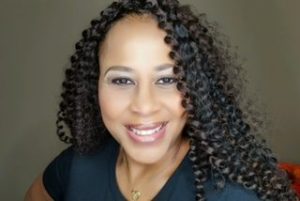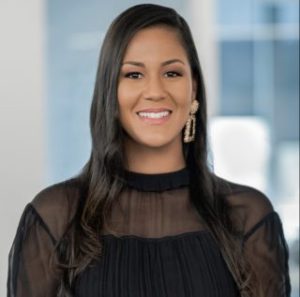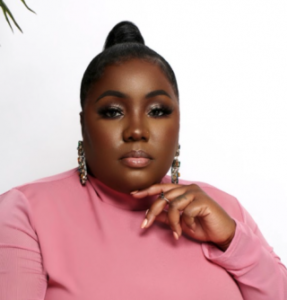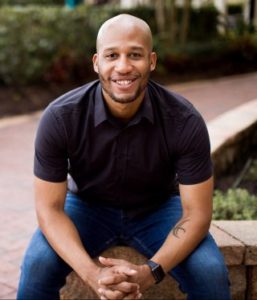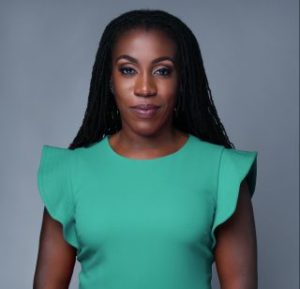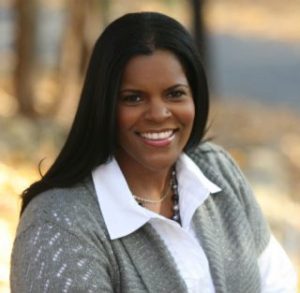6 Black Financial Pros to Follow in 2021We’re focused on achieving more together, not making huge profits for shareholders. We’re down-to-earth, and we understand our members because we have more personal relationships with them. You can bank brighter with Sunmark.
We were fortunate enough to connect with six financial experts who are big on helping people with their money. While they range in their professions — including certified financial planners, podcast hosts and authors — they all had to think about how to move forward after 2020. They offered their thoughts about people of color and the banking industry, as well as advice related to the financial setbacks that came with COVID-19. Responses have been edited for length and clarity. Learn more about each financial pro below the questions. In the FDIC’s 2019 “How America Banks” study, about one-third of unbanked households cited “don’t trust banks” as a reason for not having an account. Did you ever mistrust banks? If so, how did you get over it? Michelle Singletary Michelle Singletary (columnist, “The Color of Money”): Often people unfamiliar with racial discrimination in the Black community shake their heads in disbelief that people don’t trust banks. Or they don’t realize the demeaning way many Blacks were treated when they did business with big banks. I experienced this with my brother, who was disabled. He would have to bring me to the bank with him because of the treatment he would get. I ended up setting up a bank account with him so that I could talk to bank personnel on his behalf. One of the main reasons Blacks don’t have a bank account is due to fees. When you are living paycheck to paycheck, a bounced check fee can really set you back. Rianka R. Dorsainvil Rianka R. Dorsainvil (co-CEO, 2050 Wealth Partners): I have never mistrusted banks personally, but I know the sentiment of mistrust is shared by some of my family members and the larger Black community. I’ve found that the root cause often links back to hidden fees that felt egregious, fine print that wasn’t explicitly called out or the disappointment of being denied a small loan in a time of need. We need to elevate that current level of trust and repair these important relationships. To put family members at ease, I encourage them to ask their banker very specific questions and make sure they walk away understanding exactly what they are signing up for. Whether individuals choose a large national bank, a virtual one or rely on their local bank or credit union, there are plenty of options to suit their specific needs. Dasha Kennedy Dasha Kennedy (founder, The Broke Black Girl blog): Yes, growing up, I had 3 million reasons not to trust banks. That was the dollar amount lost by about 60,000 Black people in the 1800s, when the Freedman’s Savings Bank collapsed after a series of bad investments and poor financial management that stripped wealth from their Black customers. When you pair that catastrophe with financial exclusion obstacles, such as redlining and unfair lending practices, the mistrust in banks is intergenerational and caused me to proceed with caution when working with them. My mistrust in banks started to decrease as I learned the importance of building a relationship with community-centered banks that focus on improving financial inclusion. I also began educating myself on exactly how banks work to make strategic and informed decisions on who I bank with and why. Rich Jones Rich Jones (host, “Paychecks & Balances” podcast): I’ve been more skeptical of the lending arm of banks than banking institutions generally, since the consumer’s loss is often their gain. There’s also enough historical context to know that lending institutions haven’t been the best for people that look like me. In this fintech era, I’m more cautious because so many institutions or startups pop up and disappear, leaving consumers to find a new bank or platform and move their money around. I worry about point-of-sale financing institutions as well, since they masquerade as consumer-focused, but they’re really about the business clients. Customer service is also important and has led me to leave banks in the past. I need to feel like there’s a relationship, even if I only call or directly communicate with the institution once or twice a year. People of color were hit hard by COVID. What do you recommend to people feeling overwhelmed by the unexpected financial challenges it caused? Tiffany Aliche Tiffany Aliche (author, “Get Good with Money: Ten Simple Steps to Becoming Financially Whole”): I tell people what I wish I had known during the 2008-2009 recession; it’s uncommon money advice. You are more important than your debt. The stress and tension of financial trauma can cause you to overcompensate and forget that you are more important than your bills. Here’s the thing: Lenders cannot get paid if you are not working, if you are not healthy and you are not able to sustain an income. If that’s the case, you have to put your health and safety first. I prioritize my health and safety expenses, and that’s what I suggest to other folks. If you find yourself in a really bad financial state, instead of trying to keep up with every single bill, make sure you prioritize where you’re going to live, what you are going to eat, your medication and necessary transportation. Take care of that first. If there’s no money left over, fine. It’s OK to temporarily say, “I don’t have money for anyone else; I just have money for my health and safety.” Will your credit score drop after you pause payments for other expenses? Sure, but it’s also going to be temporary. You’re not going to die, and they’re not going to jail you. Lynnette Khalfani-Cox Lynnette Khalfani-Cox (author, “Zero Debt: The Ultimate Guide to Financial Freedom”): COVID-19 has wreaked havoc on millions of Americans — emotionally and financially. I’d suggest that people focus on the things that are within their control. Getting laid off from a job is not fun; I’ve been there and done that! But even if you’ve gotten a pink slip amid this pandemic, direct your attention and energy toward positive or constructive steps that can help you rebound. So, apply for unemployment benefits. Polish up your resume. Reach out to family, friends and former coworkers and let them know you’re job-hunting. In short, simply asking for help can be a big help. Black women, especially, have to be vocal about their circumstances and become more willing to ask for help when they need it. I fear that way too many African American women are really, really struggling and not able to keep their heads above water, but they don’t want others to know how dire their circumstances have become. Again, the data tells us that scores of Black women are in economic crisis. In December 2020 alone, Black women suffered 154,000 lost jobs. That’s really shocking — and it should serve as a wake-up call to all of us, including policymakers. Has COVID affected your personal financial goals? If so, how? Kennedy: Yes, but not in a way that concerns me as much as it enlightens me. I am pretty good with saving, investing and overall money management, but my perspective on money changed during COVID-19. During the initial few months of the lockdown, I canceled things such as vacations and purchasing a new car. I also adjusted my personal savings goals to better reflect the current times. I realized that many of the goals I thought were “must-haves” or necessities to my personal and professional life were things that I could do without. I focused more on investing my money in my family (estate planning) and my overall health. Aliche: 2020 reminded me that nothing is promised. If anything, it showed me that an industry and your income can be gone in a heartbeat. So while things are currently strong in the financial education industry, I’m accelerating my investment and retirement goals. That way, the next time an external challenge affects this industry, I’ll already be OK. So 2020 actually made me ramp up my goals — I’m saving and investing more. Singletary: The pandemic made me realize that I was letting my fear of not having enough money get in the way of enjoying the fruits of my frugality. So many lives lost makes you take stock of your life and what you’re working so hard to achieve. Financial security is important, but so is taking the time to relax and have experiences that connect you to your family and friends. I’ve talked to so many other savers who are afraid of spending what they saved. Fear can motivate you to be a good money manager, but it can also keep you from enjoying life. So, my goal, when we can travel and be with our family and friends without worrying about COVID-19, is to live more without stressing about spending the money I saved to do the things that I love and be with the people I love. About the prosTiffany Aliche, known as The Budgetnista, is an award-winning financial educator who writes about budgeting, money management and other personal finance skills. Through her Live Richer movement, she’s helped more than 1 million women save, manage and pay off millions of dollars. She also founded an online school, the Live Richer Academy, where over 40,000 students work on taking their life and finances to the next level. Rianka R. Dorsainvil is a certified financial planner, as well as the co-founder and co-CEO of 2050 Wealth Partners, a virtual, fee-only comprehensive financial planning firm dedicated to serving entrepreneurs, first-generation wealth-builders and thriving professionals in their late 20s, 30s and 40s. She also hosts “2050 TrailBlazers,” a podcast and educational platform aimed at addressing the lack of diversity in the financial planning profession. Rich Jones is the CEO and founder of Paychecks & Balances, an award-winning platform dedicated to helping millennial professionals navigate their finances and careers so they can achieve the freedom they want. He has 12 years of experience working in staffing and human resources across industries, and in 2018 became 100% debt-free. By day, Rich is an internal communications and change management specialist at Google. Dasha Kennedy is the creator of the award-winning financial advocacy group The Broke Black Girl. As a digital community leader, she provides culturally relevant financial literacy resources to over 70,000 Black women to combat the racial and gender wealth gap. Kennedy empowers her community to take a personal accountability approach toward financial security while she advocates for economic justice on their behalf. Lynnette Khalfani-Cox is known as The Money Coach, and is a personal finance expert, speaker and the author of 15 books including the New York Times bestseller “Zero Debt: The Ultimate Guide to Financial Freedom.” Through her financial education company, Lynnette helps Americans nationwide to better handle their money — especially managing credit and debt. Michelle Singletary writes “The Color of Money” for The Washington Post, a twice-a-week personal finance column that appears in dozens of newspapers across the country. She is also the author of three books on personal finance. Her fourth book, “What to Do With Your Money When Crisis Hits,” will be published in May 2021.
Amanda Cruz-Lombrana writes for NerdWallet. Email: alombrana@nerdwallet.com. Twitter: @amandalombrana. Pamela de la Fuente writes for NerdWallet. Email: pdelafuente@nerdwallet.com. The article 6 Black Financial Pros to Follow in 2021 originally appeared on NerdWallet. |
|
Routing #: 221379824
